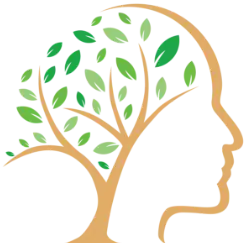Schizophrenia
Living a life with schizophrenia can be a challenging and isolating experience, but with the right treatment and proper support, individuals with this disorder can lead fulfilling lives.
What is schizophrenia?
Schizophrenia is a chronic brain condition characterized by a “disconnection” from reality. These disconnections might appear as delusions, hallucinations, disorganized speech, and disorganized or odd movements. Schizophrenia refers to both a single condition and a group of conditions classified as psychotic disorders.
Schizophrenia does not mean a split or multiple personalities. Multiple personalities are a symptom of dissociative identity disorder. Most people with schizophrenia are not dangerous to society. It is a common misperception that people with schizophrenia end up homeless or in hospitals. The majority of persons with schizophrenia live at home, in group homes, or on their own.

What are the symptoms of Psychotic Disorders?
Schizophrenia is a complex disorder with a range of symptoms that can vary from person to person. The symptoms of schizophrenia are typically categorized as positive, negative, or cognitive.
Positive symptoms:
Delusions:
Delusions are persistent false beliefs that continue despite apparent or reasonable proof that they are untrue or illogical. The most common are persecutory (or paranoid) delusions, in which a person feels they are being hurt or tormented by another person or group. These are incorrect ideas that a person will not change despite evidence to the contrary.
Hallucinations:
Hallucinations are the illusion of hearing, seeing, smelling, tasting, or experiencing things that are not really there. They are clear and distinct, giving the appearance of normal experiences. The most prevalent type of hallucination in schizophrenia is an auditory hallucination, or “hearing voices.” These are things that don’t exist, yet you believe they do.
Disorganized thinking and speech:
It refers to thoughts and speech that are disorganized, confused, and/or do not make sense. It may be severe enough that you are unable to comprehend them because their words are jumbled or incomprehensible. People suffering from schizophrenia frequently struggle to organize their thoughts when speaking.
Disorganized or abnormal motor behavior:
These are motions that can range from childlike silliness to unpredictable agitation, disturbing, or repetitive movements. When the behavior is severe, it might interfere with the performance of daily activities. It comprises catatonia, a condition in which a person does not react to the stimuli as expected. They may strike a certain pose, fail to reply to the person speaking to them or begin moving around excessively for no apparent reason.
Cognitive symptoms
It can impact a person’s ability to think clearly and perform daily tasks. These can include:
- Problems with memory and attention.
- Difficulty with decision-making and problem-solving.
- Difficulty with planning, prioritizing, and organizing.
- Trouble focusing or paying attention
- Slower processing speed,
Negative symptoms
Lack of motivation: Loss of drive to engage in activities or tasks especially when it comes to socializing or doing things they normally love.
Social withdrawal: Avoiding social interactions and relationships.
Impaired emotional expression: A decrease in the range or intensity of emotions.
Anhedonia: The inability to feel pleasure or enjoyment.
What are the risk factors of schizophrenia?
Genetics:
People with a family history of schizophrenia are far more likely to develop the disorder. However, it is not caused by a single gene; other factors, such as environmental influences, are also important.
Birth problems:
If a mother experiences deficiency during pregnancy, the child’s risk of developing schizophrenia increases. Additionally, if a child is underweight or experiences difficulties during birth, the risk also increases.
Drug usage for recreation:
Researchers have connected schizophrenia to the use of some recreational drugs.
Neurochemistry:
Imbalances in certain neurotransmitters and abnormalities in brain structure and function have also been observed in individuals with schizophrenia.
Others:

What are the treatment options for schizophrenia?
Although there is no specific cure for schizophrenia, many individuals can manage their symptoms over time. In a small number of cases, people with schizophrenia may fully recover.
Medications:
Antipsychotic drugs have greatly improved the outlook for individual patients as they reduce psychotic symptoms and usually allow the patient to function more effectively and appropriately. Two types of antipsychotic medicines are used to treat psychotic disorders.
- Typical antipsychotics. These drugs interact with how your brain utilizes dopamine, a neurotransmitter for cell-to-cell communication.
- Atypical antipsychotics. These inhibit both dopamine and serotonin, two important brain communication neurotransmitters.
Hospitalization:
In the acute stage of the illness, hospitalization might be required if the patient brings a risk to others or himself or is unable to take care of himself. To make sure the patient takes the appropriate medicine, hospitalization is frequently advised.
Family Therapy:
Family therapy is another treatment option that can be incredibly effective for those living with psychotic disorders. This approach focuses on involving family members in the treatment process and helping them learn to communicate effectively and offer support.
Psychotherapy:
Psychotherapy involves regularly scheduled talks between the patient and a mental health professional. The sessions may focus on current or past problems, experiences, thoughts, feelings, or relationships. It can be a long-term treatment option, but it can make a significant difference in the right individual’s quality of life.
Cognitive Behavioral Therapy:
CBT treatment can assist persons with schizophrenia to cope with and manage their condition. It may reduce symptoms and enhance function. Long-term therapy can also assist with secondary conditions that accompany schizophrenia, such as anxiety, sadness, or substance abuse.
Helping someone who may have schizophrenia
If you think someone you know may have symptoms of schizophrenia, talk to him or her about your concerns. Even while you can’t force someone to get professional help, you can encourage them, support them, and assist them in finding a skilled medical or psychological expert.
You might need to call 911 or another emergency line for assistance so that a mental health expert can assess your loved one if they are a risk to themselves or others
